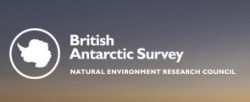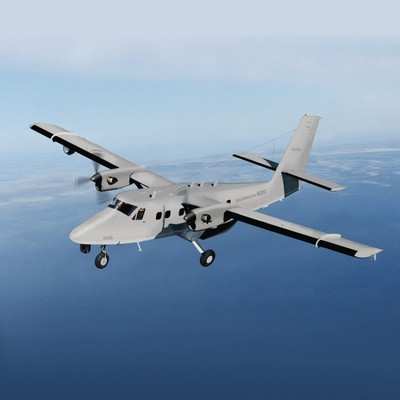Wed, Dec 09, 2009
It's A Different Kind Of Corporate Flying: Polar Scientific
Research
 British Antarctic Survey (BAS) has achieved registration for
the International Standard for Business Aircraft Operations
(IS-BAO). Following a rigorous assessment by the International
Business Aviation Council (IBAC) accreditation was given in
recognition of its safe working practices and procedures when
working in the Antarctic's extreme environment.
British Antarctic Survey (BAS) has achieved registration for
the International Standard for Business Aircraft Operations
(IS-BAO). Following a rigorous assessment by the International
Business Aviation Council (IBAC) accreditation was given in
recognition of its safe working practices and procedures when
working in the Antarctic's extreme environment.
BAS's operating environment is naturally more hazardous than the
normal routine operations of a small corporate aviation unit. The
organization's four de Havilland Twin Otters (DHC6 - 300 series)
and the de Havilland Dash 7 (DHC7 - 110) are used in both
logistical support and as science platforms. For example, the
Dash 7 and one Twin Otter is used extensively for geophysical
surveys. Another of the Twin Otters has sensors fitted on the nose
and wings for studying cloud and weather conditions. Each of these
survey aircraft also have custom fitted large format camera hatches
for aerial photography and mapping purposes.
Iain Tulloch, lead Auditor at IBAC presented BAS with the
registration certificate and congratulated the operations team for
developing exceptional safety and environmental management systems
when working in such challenging conditions. "The success of this
audit was based on the co-operation and transparency of the
organization," he said. "I am extremely impressed with the mature
and comprehensive practical implementation of the safety management
system. Without a sound safety culture even the best systems do not
work, but it is clear that at all levels of the organization there
is a strong commitment to safety when working in the Polar
Regions." Joining the presentation were three BAS scientists who
gave a valuable insight in to the importance of aircraft supported
operations in their scientific fields.

Twn Otter File Photo
BAS Director, Professor Nicholas Owens, welcomed Mr Tulloch's
comments and highlighted the importance of aviation to achieving
effective scientific research both in the Antarctic and the Arctic.
"The benefits of aviation to our work at BAS are countless. If we
had to rely on surface transport alone, there is no doubt that the
scientific research taking place in the Polar Regions would be less
comprehensive. Aviation has and will continue to make an important
contribution to vital scientific research in the Polar Regions, and
I am delighted to receive this important registration under the
International Business Aviation Council (IBAC)."
The International Civil Aviation Organization (ICAO) recently
changed the way in which larger and more complex aircraft should be
operated and governed throughout the world. This was reflected in
changes to the Air Navigation (Overseas Territories) Order that was
published in Jan 2008, and means that BAS works under a new
category with different regulations governing Corporate
Aviation.
More News
19-Year-Old Pilot Was Attempting to Fly Solo to All Seven Continents On his journey to become the first pilot to land solo on all seven continents, 19-year-old Ethan Guo has hit a >[...]
From 2017 (YouTube Edition): A Quality LSA For Well Under $100k… Aeroprakt unveiled its new LSA at the Deland Sport Aviation Showcase in November. Dennis Long, U.S. Importer>[...]
Hazardous Weather Information Summary of significant meteorological information (SIGMET/WS), convective significant meteorological information (convective SIGMET/WST), urgent pilot>[...]
Aero Linx: Historic Aircraft Association (HAA) The Historic Aircraft Association (HAA) was founded in 1979 with the aim of furthering the safe flying of historic aircraft in the UK>[...]
"We would like to remember Liam not just for the way he left this world, but for how he lived in it... Liam was fearless, not necessarily because he wasn't afraid but because he re>[...]
 TikToker Arrested After Landing His C182 in Antarctica
TikToker Arrested After Landing His C182 in Antarctica Classic Aero-TV: Versatile AND Practical - The All-Seeing Aeroprakt A-22 LSA
Classic Aero-TV: Versatile AND Practical - The All-Seeing Aeroprakt A-22 LSA ANN's Daily Aero-Term (06.27.25): Hazardous Weather Information
ANN's Daily Aero-Term (06.27.25): Hazardous Weather Information ANN's Daily Aero-Linx (06.27.25)
ANN's Daily Aero-Linx (06.27.25) Aero-News: Quote of the Day (06.27.25)
Aero-News: Quote of the Day (06.27.25)




